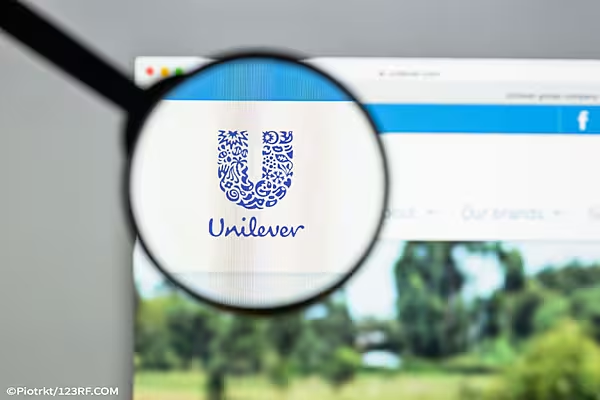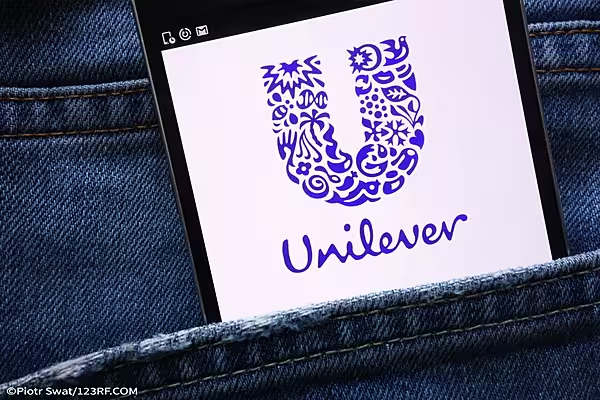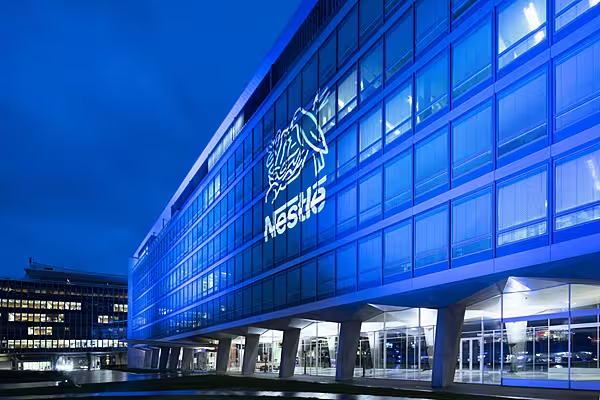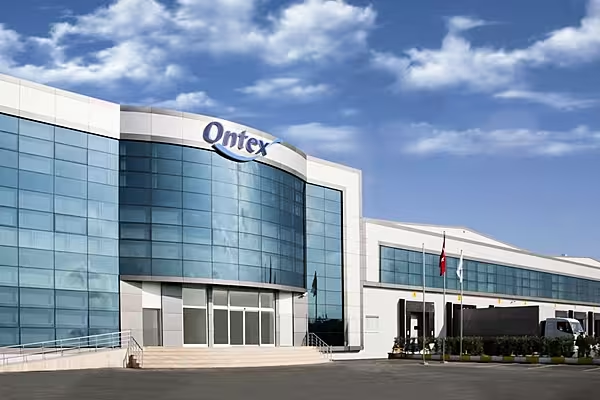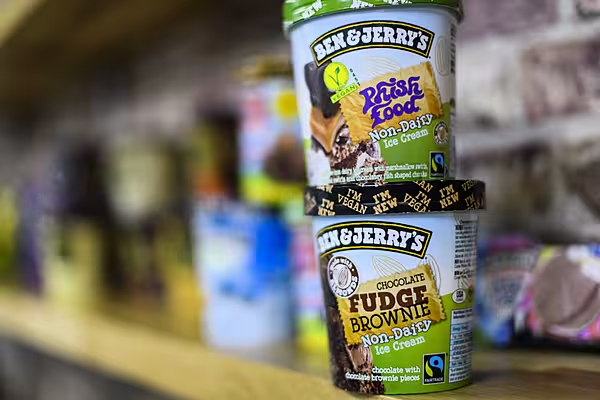Consumer goods giant Unilever beat expectations as it posted a 2.5% increase in third quarter sales on Thursday, with the business expecting to be 'well within' its planned 3% to 5% target for the full year.
"The combination of our strategic choices and focus on operational excellence continue to drive competitive growth," commented chief executive Alan Jope.
Here's how leading industry analysts viewed its performance.
Deborah Aitken, Bloomberg Intelligence
“It's unlikely Unilever will report such an extraordinarily bad 4Q for it to miss 2021's organic multiyear organic sales-growth target of 3-5%, yet the way 3Q's 2.5% growth is made up shows a 1.5% volume hit due to raised prices and the fragility of category positioning. This suggests margin weakness into 2022. Volume erosion is across all three divisions, an indicator of market-share losses, which won't easily be recouped.
“Most of Unilever's wide-ranging consumer categories and top-tier brands are well-positioned for a recovery from the pandemic, and though South East Asia is less accepting of price hikes, more cost-cutting should help to offset escalating commodity inflation, tempering margin pressure.
"The reinstatement of multiyear targets is driven by a belief in Unilever's products and growing market share. The separation of most of its tea business followed fine-tuning in personal care. Free cash flow of £7.7 billion (up £1.5 billion in 2020) supports dividend recovery, a 3 billion-euro buyback and reinvestment for growth.”
Carmen Bryan, GlobalData
“Unilever’s focus on investments and divestments has really paid off, helping support the company through rocky waters. However, the price inflation of raw materials currently plaguing the industry will dampen the company’s success, impacting investor confidence in the long term.
“The company is particularly challenged by the inflationary pressures, as a sizable portion of its business is focused on ‘emerging markets’. The company will be forced to pass the costs on to the consumer. This will tighten Unilever’s margins over the next year, as many people worldwide are still under financial pressure following the COVID-19 health crisis.
“On a more positive note, Unilever has reported an impressive performance in e-commerce, with the channel growing 38% to reach 12% of the company’s overall sales. This is no doubt helped by the acquisition of digitally native brand Paula’s Choice, enhancing its beauty portfolio, as well as strong e-commerce adoption. GlobalData’s survey also revealed that two in five (39%) people are still buying groceries online more often since the last three months. The threat of another COVID-19 wave in Europe will likely give e-commerce an immediate, albeit short-lived, boost in interest before settling to more moderate growth.
“Overall, Unilever has shown strong performance in core categories—from comfort foods to household essentials—that are well placed to benefit from pandemic trends. However, the company will want to strike a balance between a purpose-led business model and profits in order to keep investors and consumers happy in the coming year.”
Danni Hewson, AJ Bell
“Unilever reckons inflation is here to stay. That’s bad news not just for investors in the consumer goods giant but also for central bankers. The likes of the Federal Reserve will have been hoping inflationary pressures would ease sooner rather than later as they walk the tightrope of keeping prices from overheating while not choking off the recovery by raising interest rates too far and too fast.
“However, given the breadth of costs Unilever is exposed to and the fact that dealing with input costs is bread and butter for a consumer goods company, a warning that inflation will be higher in 2022 carries weight.
“For now Unilever hopes price increases, running at the highest rate in years, will keep margins flat year on year but the company faces its own balancing act of not increasing prices so much that its products are no longer competitive. It is a real test of the strength of the company’s brands. After all, will we really stick with branded soap at a materially higher price when there’s an unbranded alternative sitting next to it on the shelf which is an order of magnitude cheaper?
“If enough consumers decide they can put up with a cheaper alternative then it would become a big problem for Unilever.”
Ivan Holman, Bernstein
"Q3 Group organic growth at +2.5% was +30bps ahead of consensus (+2.2%), with volume/mix negative at -1.5% and +4.1% from pricing. Margin guidance for the year maintained ‘around flat for full year’ – some had expected a cut here given input cost pressures.
"South East Asia was said to be the main source of volume decline, yet volumes were negative across all geographies and all divisions, but this is in the context of tough prior year comparatives."
© 2021 European Supermarket Magazine. Article by Stephen Wynne-Jones. For more A-Brands news, click here. Click subscribe to sign up to ESM: European Supermarket Magazine.
